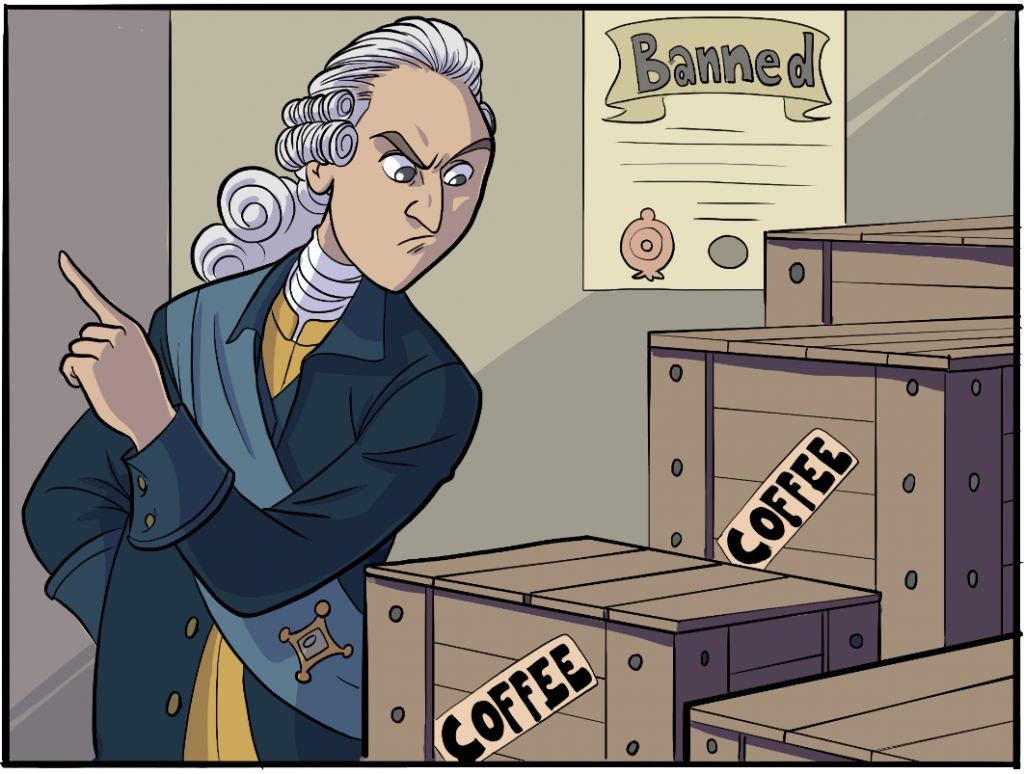In every lockdown, there’s a silver lining.
Let me explain.
But before I do, I am wriing about a situation where we are a team that is forunate to work from home and isn’t at the front-line trying to fight the virus. Frankly, in that context, this story is insignificant.
Even though we were pre-warned it was coming, the coronavirus lockdown was a shock. As we transitioned to working 100% remotely, I wanted to keep in touch my team while we transitioned.
So I setup up two meetings at 10am and 3pm, but the twist was we were NOT to speak about work.
After running them a couple of times – Anna, a team member from Sweden, said: “This is exactly like a Fika.”
What is a ‘Fika’?
Let me take you back to the 1700s. The social elite had developed a habit for a nasty and evil substance. Can you guess what It was?
Yes, that’s right, it was coffee!
In London, coffee houses had sprung up where learnt the news of the day, and meet with likeminded residents to discuss matters of mutual concern.
Unlike an alehouse, the absence of alcohol created an atmosphere in which it was possible to engage in more serious conversation. Coffeehouses pivotal in the development of financial markets and newspapers.
Simply put, coffeehouses were political and business hothouses.
But in one country, coffee was seen as the enemy. That was in Sweden, under the reign of King Gustav the third.

Gustav was convinced of coffee’s adverse health effects and paranoid that coffee shop gatherings brewed anti-monarchy sentiment.
It’s satisfying to know that even in those days, politicians were promoting health when their real concern was their own welfare.
Gustav decided to tax coffee heavily, but the Swedes refused to pay it. In response, he decided to ban it! The world’s prohibition. Which again, those that could afford it, ignored and continued to drink it.
It tuns out Gustav was so convinced of the health issues that he ordered two imprisoned twins to take part in an experiment. Each day, one twin would drink three cups of tea and the other three cups of coffee.

Both twins outlived the doctors and the King, and the first twin to die did so at 83 years old.
Impressive as the average lifespan for someone born in that period of time, in Sweden was 33.72 years.
And he was the tea-drinker.
Gie it up for caffeine!
The banning of coffee led to a black market. The Swedish word for coffee, KAFFI was altered, and the term “Fika” was born to describe when people met in secret for a coffee.
So what about Fika today?
In many Swedish companies, it’s not just a daily ritual — it’s mandatory that employees take two Fika breaks a day! And according to the Swedish Fika report (yes, there is one) Swedes spend 227 hours or 9.5 days a year on Fika.
That might seem a lot of time wasted. But consider this:

- A 2010 Grant Thornton survey found that Swedish workers were the least stressed worldwide.
- Even considering their frequent Fika breaks, they work shorter workdays. (Although a controversial experiment to bring the workday down to six hours increased producvitivy but the costs outweighed the benefits)
- And the OECD put them 11th worldwide for productivity, seven places ahead of the UK.
For our team under lockdown, the impact is subtle yet significant:
Our team is having more in-depth conversations. We’ve spent money on nights out, meals and even weekends away, but they are not as effective as when it comes to getting to know each other.
We’ve noticed:
- Some of the ongoing-friction (admittedly caused by me) is reducing. I believe it’s because we are taking time to listen to each other, rather than focusing on what’s always pushing us subconciously.
- Ideation and collaboration appear to be better.
- In a short number of weeks in lockdown, we have moved from being colleagues to becoming friends.
Not a bad outcome from the virus.
To balance this positive argument, I noticed that productivity is down but right now there are many other factors at play such as childcare. But it made me realised during this time having more friends is more important than more output.
Ulitmatey, during lockdown we need to focus on remaining sane rather than being more productive.
I’m thankful that King Gustav’s paranoia has led to many people, including me, to look forward to our daily Fika meetings.
So I challenge you – would you try a Fika?
{{cta(‘db292041-c8c9-4a94-a042-fe35751d35c1′,’justifycenter’)}}




